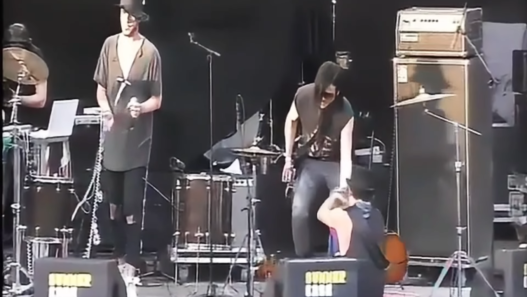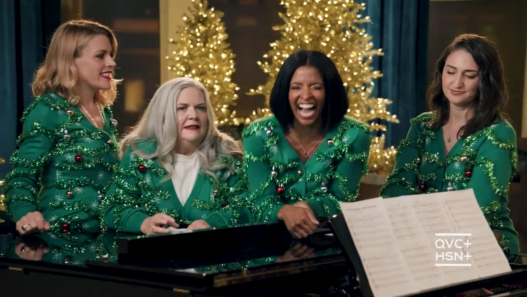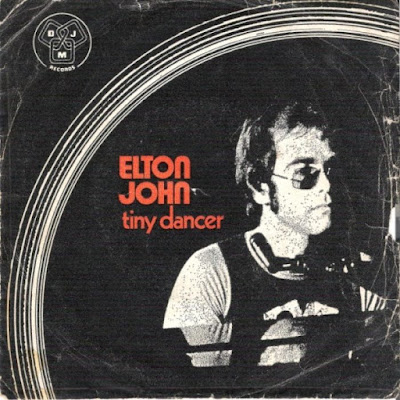According to one of our musical sources:
“Three Dog Night – “Black & White”
HIT #1: September 16, 1972
STAYED AT #1: 1 week
History turns into kitsch so quickly it’ll spin your head. In the landmark 1954 case Brown Vs. Board Of Education, the Supreme Court found that racially segregated schools were unconstitutional. For the embattled American left, this was cause for celebration. And in 1955, two folk songwriters who’d both been blacklisted during the era of McCarthyism got together to write a song that celebrated that decision. Earl Robinson and David I. Arkin (Alan’s father) wrote “Black And White” about the new world that they were hoping would come from that court decision — a world where black and white kids could learn together in harmony. Segregation, of course, came to take different forms, and we still don’t live in the world that Robinson and Arkin envisioned. But 17 years after they wrote that song, Robinson and Arkin’s “Black & White” became a big, goofy Three Dog Night hit. Progress?
“Black & White” went through a bunch of different permutations before it became a Three Dog Night hit. Pete Seeger, another victim of the blacklist, recorded “Black & White” in 1956. Seeger sang it as a kids’ song, a group of whistling children accompanying Seeger and his banjo. He sounds so optimistic on that song that it might break your heart.
The Jamaican reggae group Greyhound recorded a sweet, expansive pop version of “Black & White” in 1971, and their version was a hit in the UK, climbing as high as #6. The Greyhound version of the song is just lovely, and of course it gains a certain resonance when it’s performed by a group of black men from a desperately poor, colonially exploited country. Three Dog Night heard Greyhound’s version of the song on a Dutch radio station when they were on tour in Europe, and they knew right away that it would be a hit.
The Three Dog Night arrangement of “Black & White” is pretty similar to what Greyhound had done with the song, right down to the squirming organ line. It’s not as graceful, of course, and it doesn’t have as much at stake. But it’s a well put-together pop song, and the little flourishes that Three Dog Night added — the nagging piano riff, the perfectly timed cowbells — do add to the song. Like Pete Seeger, Three Dog Night add to the song’s pathos by putting a kids’ choir on the song. But they take away something from the original version of the song, too. Arkin and Robinson had included a verse that made it obvious that the song was about that Supreme Court decision: “Their robes were black / Their heads were white / The schoolhouse doors were closed so tight / Nine judges all set down their names / To end the years and years of shame.”
Maybe Three Dog Night thought that the direct reference to an old court case would date the song, making it less relevant. But when you take that verse out, you also remove the idea of racism and segregation as sources of American shame, of crimes that require atonement. Instead, it becomes a sunny and naïve vision of a world that might never come into being.
Three Dog Night had three lead singers and three #1 singles, and each of those #1 singles had a different member of the group singing lead. Cory Wells sang lead on “Mama Told Me (Not To Come).” Chuck Negron sang lead on “Joy To The World.” And Danny Hutton, a guy who’d come up making music for Hanna Barbera cartoons, sang lead on “Black And White.” Maybe that history of cartoon music is what I’m hearing on Hutton’s “Black & White.” Maybe Hutton was just comfortable making music for a bright and colorful world, a place where differences can be solved within half an hour, commercials included.
Three Dog Night’s take on “Black & White” is well-intentioned, certainly. It’s also catchy. Three Dog Night were good at making upbeat, simplistic pop music, and “Black & White” is a fine example of that. It’s a sticky, memorable tune that will forcibly lodge itself into your brain. And maybe a song like this helped convince a few people that a better world was possible. But now, 46 years later, there’s a tinge of sadness to those words: “A child is black / A child is white / Together, they learn to see the light.” Those lyrics now have a cloying hopelessness to them. Maybe those kids don’t have klansmen standing in their schoolhouse doors anymore, trying to keep them apart. But redlining and redistricting and American capitalism are now doing that work. That’s not Three Dog Night’s fault, but it does make it harder to hear “Black & White’ as a triumph.
GRADE: 6/10
BONUS BEATS: Here’s Kool G Rap & DJ Polo’s 1990 Biz Markie/Big Daddy Kane collab “Erase Racism,” which features Biz singing “Black & White” on the hook:
(Biz Markie’s highest-charting single is 1989’s “Just A Friend.” It’s a 10.)
BONUS BONUS BEATS: On N.O.R.E.’s 1998 track “Mathematics (Esta Loca),” producers DJ Clue and Duro sampled the piano line from Three Dog Night’s version of “Black And White.” Here’s “Mathematics (Esta Loca)”:
(N.O.R.E.’s highest-charting single is 2002’s “Nothin’,” which peaked at #10. It’s an 8.).” – Stereogum.com

















